Hitchcock, in his American period, had often remarkable success with his choice of musical collaborators, notably with Miklos Rozsa, Franz Waxman and, in particular, with Dimitri Tiomkin, who seemed able to echo the sense of urgency and nervous agitation associated with Hitchcockian dilemmas. However, during the director’s years of greatest critical, commercial and artistic success no one embodied the dramatic angst and sobriety of Hitchcock’s agenda more effectively than Bernard Herrmann. Through the earliest satiric strains of The Trouble with Harry to the cold war menace of Torn Curtain, Bernard Herrmann seemed the perfect musical expression of Hitchcock’s benign malevolence.
Both director and composer had, of course enjoyed great success with other partners along their separate paths in Hollywood and abroad and had become two of the most visible technicians in the industry. Hitchcock had launched his career in 1922 in Munich, Germany with the unfinished Number Thirteen, followed in 1925 by his first completed picture, The Pleasure Garden and would, over the years, become justifiably celebrated for his growing mastery of visual stylism. Possessed of rare understanding and command of both camera and art direction, Hitchcock could convey in a single pan of the lens a situation a writer might take pages to convey. While his visual style may have conveyed poetry in motion, the soundtrack for most British films of the early sound period was maddeningly devoid of accompaniment. Consequently, while stylistically compelling, many of the early films by the master have not aged as gracefully as their American counterparts. When Hitchcock arrived on American soil in 1943, courtesy of producer David 0. Selznick, it was to direct Titanic, the directors’ take on the ill fated ocean liner. Postponed indefinitely, however, Hitch would film Daphne du Maurier’s acclaimed romantic novel Rebecca, a story he had coveted while still in England. Franz Waxman composed the full bodied symphonic score for the picture which became the only Alfred Hitchcock production ever to win an Oscar for best picture of the year. (Selznick was presented the award as producer.)
Bernard Herrmann composed his first complete work for large orchestra, The Forest: A Tone Poem, in January of 1929. Five years later in 1934 he wrote his earliest works for radio, In The Modern Manner, a series of poetry settings, followed in 1937 by a string of experimental compositions for The Columbia Workshop. It was in 1938, however, that the composer’s fortunes would change forever when he became the staff composer for Orson Welles legendary radio anthology, The Mercury Theatre On The Air. Under the guidance of producer/star Orson Welles, Herrmann began his first thematic scoring for such dramatic presentations as Dracula, Heart Of Darkness, The Magnificent Ambersons, The Thirty Nine Steps, A Tale Of Two Cities and, of course, The War Of The Worlds, the notorious docu-drama that would bring both Welles and, ultimately, Bernard Herrmann to the attention of Hollywood. When Welles’ dramatization of H.G. Wells’ science fiction novel exploded onto the front pages of America’s newspapers in October, 1938, the young actor became the talk of the country. As the movies beckoned, Orson Welles was preparing to take Hollywood by storm just as he had conquered the airwaves. Welles took the members of his radio theatre to R.K.O. where he would begin filming Citizen Kane. The cast members of the Mercury Theatre On The Air faced the motion picture cameras for the first time and Bernard Herrmann was signed to pen his first film score. The experience would forever change his life. Although considered by most critics and fans the single most influential composer the movies ever produced, Herrmann himself considered his career as a composer secondary to his first love, conducting. While most conductors would gladly have traded their batons for an opportunity to write enduring musical composition Bernard Herrmann, among the most uniquely gifted composers of the twentieth century, would gladly have given up composition for the opportunity to champion and conduct other composer’s works.

Hitchcock followed his debut performance on American shores with a second film in 1940, this time for producer Walter Wanger. Foreign Correspondent became the British director’s first mainstream American film and easily set the stage for numerous future themes and productions. With its multi-layered and convoluted plot, the war themed spy melodrama appears the obvious precursor for the later and, arguably, most popular of Hitchcocks films, North By Northwest. Composer Alfred Newman joined the production team for the celebrated thriller and turned out a romantic and exciting score worthy of Hitchcock’s efforts. After a decade of prominent, memorable scoring by many of the world’s leading composers it must now have seemed obvious to all but the most conceited of film purists that music, as much as direction, cinematography and editing was an integral part of the motion picture experience. When Hitchcock objected to the introduction of music during a sequence in Lifeboat (1943) he questioned the logic of having a string section appear in the middle of the ocean. These people are lost in a lifeboat in the middle of nowhere, he is reported to have complained. Where, then, did the orchestra come from? To which composer Hugo Friedhofer is said to have responded The same place the camera came from, Mr. Hitchcock.
As Hitchcock’s celebrity increased, his public persona seemed at times to achieve star recognition. He was becoming as much a public figure as the actors and actresses who performed in his pictures. Always aware of his unique power in the industry, Hitchcock often cast himself in a walk-on performance in his productions. So popular were the director’s on screen appearances that he frequently had to think of new and creative ways in which to place himself in a scene. With Lifeboat he faced his most formidable challenge; the story of a handful of shipwrecked survivors cast adrift on a raft in the middle of the ocean. He solved his dilemma by having an actor reading a newspaper in which there appears a before and after advertisement for weight loss. Hitchcock himself appeared as the model in the print ad. For all of his genius, however, Hitchcock was becoming increasingly demanding on the set, and his patience in sharing the spotlight with others was growing notoriously dim. When Miklos Rozsa’s score for Hitchcock’s Spellbound (1945) not only won the Oscar that year for Best Original Score, but took on a life of its own on the classical music circuit, he made a point of never working with the gifted composer again.
Bernard Herrmann’s conducting aspirations were rewarded when on April 6, 1943, Invitation To Music, a new weekly series of concert works, premiered over the CBS radio network. While Arturo Toscanini performed his conducting chores each week for NBC Radio, Bernard Herrmann shared similar honors for CBS. It was a most gratifying period for Herrmann, and made him something of a household name for a time as he entered millions of homes each week, along with a roster of guests that included some of the leading composers and conductors in the classical world. Unfortunately, however, his conducting rarely paid the kind of income he was becoming capable of demanding through his work with the major Hollywood studios and he was, to his sorrow, becoming increasingly popular as a major Hollywood composer. With the glorious music of films such as The Ghost and Mrs. Muir and Jane Eyre to his credit, his talent and reputation were about to bring him to the attention of another Hollywood genius, Alfred Hitchcock. If Hitchcock had become, through complex scenarios and technical expertise, the master of the eloquent absurdity, then Bernard Herrmann would soon become its maestro.
Herrmann had been living in New York with his wife, Lucy. When the CBS Symphony Orchestra finally disbanded in 1951 the couple decided to pack their belongings and start fresh in the land of dreams, California.
While Hitchcock’s To Catch A Thief was being completed for Paramount in 1955 he was already at work preparing his next film, a comedic exercise entitled The Trouble With Harry. Harry, a decidedly lighter film than the director had attempted in years, concerned the appalling dilemma facing its title character. The trouble with Harry was that the lately deceased corpse couldn’t seem to stay buried. Lyn Murray was busily finishing his score for To Catch A Thief and suggested his friend Bernard Herrmann for the assignment. Hitchcock had encountered Herrmann years earlier but the two had never really found an opportunity to cement a relationship. For his part, the composer relished the idea of scoring a comedy. Herrmann had produced much of his heavily dramatic motion picture output under the Twentieth Century Fox banner and welcomed the chance to work at another studio, however briefly. The quality of Paramount’s staff orchestra provided Herrmann with a challenge he hadn’t counted on. A perfectionist of legendary stature, Herrmann soon began fighting with members of the group, railing at their ineffectual and unprofessional performance. The Fox Orchestra had become a tight, well oiled, and finely tuned unit with whom Herrmann had enjoyed a long, successful collaboration. He wasn’t about to settle for second best, even for Hitchcock. Paramount’s head music cutter walked up to Lyn Murray at the completion of the first session and told Murray “He may be a friend of yours, but he’s still a prick.”

Despite this uneasy introduction, The Trouble With Harry would signal the beginning of one of Hollywood’s most successful artistic associations. For the film Herrmann composed some original music, as well as re-using some cues he had written earlier for the CBS radio series, Crime Classics. While he often bristled at the suggestion that he re-used cues from other films Herrmann, as well as most other composers would, if the mood demanded it, use a theme from a previous work. Alfred Newman used the stirring theme from Vigil In The Night (RKO – 1939) in his own later score for Fox’s Hell And High Water (1954). The hugely prolific Max Steiner, having written over three hundred motion scores, reputedly became so confused during his heyday that it became difficult to remember if a melody was his own or if he had heard it elsewhere. So the story goes that his associates, as a prank, took the morning scoring sessions on one particular film, and replayed the tape of his newest composition through the radio in his studio bungalow that evening. Steiner nearly threw away the theme, thinking that he had inadvertently copied the work of another composer. Herrmann himself utilized themes from his score for Orson Welles’ Jane Eyre (1944) for his opera Wuthering Heights in 1951.
Hitchcock was delighted with Herrmann’s score for Harry, and regarded it as his favorite of their frequent collaborations. The score was lovely and lyrical, perfectly capturing not only Hitchcock’s wry sense of macabre humor but the sweet innocence of rural Americana, as well. A personal bond between the two artists formed quickly. Both Hitchcock and Herrmann had become renowned for their darker sides of genius. Each man was moody, and temperamental, suffering from long sieges of depression and prone to explosions of unpredictable rage. Yet, in each other’s company, they were trusting and comfortable. The normally reclusive Hitchcock would often invite Bernard and Lucy Herrmann for the weekend at his Bel Aire estate. Hitchcock would cook, while the two men spent endless hours talking in the director’s kitchen. Each man regarded the other with respect and a degree of admiration. Herrmann seemed to understand Hitchcock’s inner complexities, and became a comforting influence on and off the screen. On the screen Bernard Herrmann became the musical voice the director had sought for years, a seamless expansion of the director’s complicated psyche, manifested perfectly in all of its psycho-sexual nuance. Whatever inner doubts and demons plagued and inspired both men seemed to come provocatively to life in each of their highly successful marriages of visualization and music. Rarely in film has there existed as pure an artistic umbilical chord.
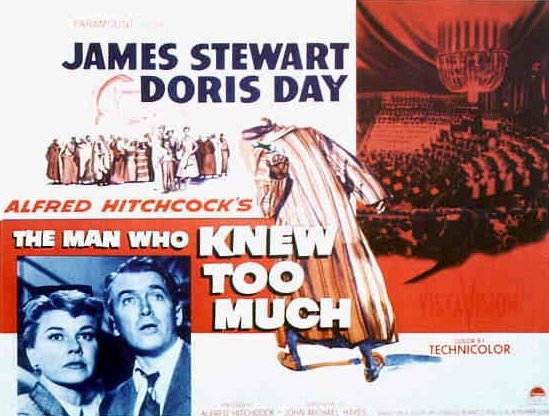
For their second film together Hitchcock chose to return to the scene of an earlier crime, his 1934 British production The Man Who Knew Too Much. Although Hitchcock liked his earlier effort, he regarded it as “the work of a talented amateur.” Now, with the considerable resources of Paramount Pictures behind him, Hitch would remake the film as a master craftsman at the top of his game. The 1956 remake of The Man Who Knew Too Much is superior to the original in almost every aspect. The cinematography by Robert Burks is stunning, Richard Mueller’s use of Technicolor is spectacular, while George Tomasini’s editing is disturbingly subtle. The story line of the remake is fairly faithful to that of the original, including the explosive finale in which an attempted assassination is thwarted to the musical accompaniment of Arthur Benjamin’s lavish “Storm Cloud” cantata. For the new sequence, shooting would be completed on location in London at the Royal Albert Hall, complete with the London Symphony Orchestra, and the Covent Garden Chorus. Herrmann was asked to write an original composition for the climactic sequence but declined, choosing once more to champion the work of a composer he much admired, stating that no other scoring could begin to equal the thrilling conclusion of Arthur Benjamin’s celebrated work. In fact, in order to lengthen the sequence, Benjamin was commissioned by Paramount to write an additional minute and twenty seconds of music for his already highly regarded and well known piece.
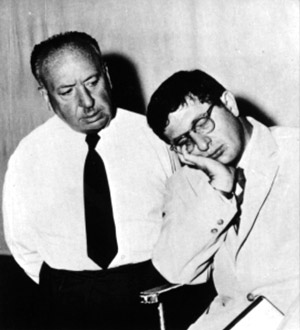
Per author Steven C. Smith in his wonderful biography of Bernard Herrmann, “A Heart at Fire’s Center” (University of California Press – 1991), Hitchcock chose to identify a known orchestra and conductor, rather than portray an imaginary ensemble with a fictitious leader. In the sequence, large posters proclaim the concert outside the hall along with its conductor for the evening. Arthur Benjamin suggested the use of British conductor Muir Matheson for the plum on-screen conducting performance, while the film’s producer Herbert Coleman offered Basil Cameron. Hitchcock made the final decision and Bernard Herrmann, in his only motion picture appearance, appeared on the podium in white tie and tails conducting the Benjamin cantata for the celebrated climax. This early pairing of Bernard Herrmann with the London Symphony Orchestra was a happy experience for both the conductor and his players. Herrmann reportedly won over the members of the orchestra with delightful tales of Hollywood’s golden years, along with his extraordinary knowledge of musical minutiae. So entranced were the members of the symphony that, by the end of shooting, they had presented a volume on their distinguished history to the composer inscribed “To Bernard Herrmann, The Man Who Knows So Much.” No less generous, Herrmann successfully negotiated an additional one hundred pounds to be paid to Arthur Benjamin over and above his original salary. Ultimately The Man Who Knew Too Much proved a huge success for Paramount, and remains among the finest examples of Hitchcock’s later work.
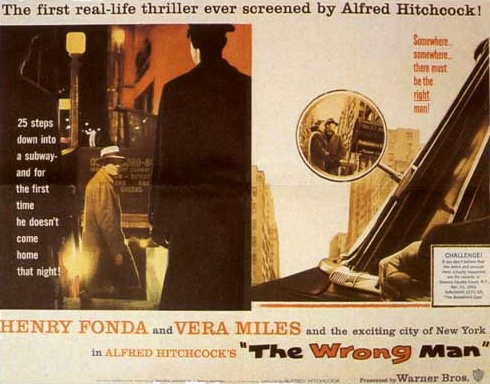
For their next pairing, Hitchcock moved temporarily over to Warner Brothers for the 1957 film The Wrong Man. Based upon a true story, the unrelentingly somber film related, in semi-documentary style, the tragic sequence of events leading to the mistaken arrest and conviction of Christopher Emmanuel “Manny” Balestrero, a musician at New York’s posh Stork Club, accused of an armed robbery he didn’t commit. The painful mental disintegration of Balestrero’s wife, Rose, under the crushing scrutiny of the police, as well as the unforgiving lens of a societal microscope, is nearly too painful to watch. Herrmann’s stark, moody score perfectly conveys the terror of a family crumbling beneath the weight of bureaucratic bullying and stupidity. Herrmann’s very affecting mixture of both brooding symphonic, and unnerving jazz motifs, seem a precursor to his final disturbing score for Martin Scorsese’s savaging of New York, Taxi Driver (1976). The composer passed away only hours after completing his score for Scorsese on Christmas Eve, 1975.
Both on and off the screen the relationship between Alfred Hitchcock and Bernard Herrmann was deepening. The composer was being drawn ever closer into the insecure director’s ever shrinking world of friends and colleagues. Hitchcock’s authoritarian command of his films left little room for the creative contributions of others. And, perhaps, justifiably so since he had become one of the world’s most successful and admired artists. When Hitchcock prepared a picture, he usually had the entire production outlined in his thoughts before a single frame of film had been shot. He was often difficult to work with, demanding loyalty and strict adherence to his instructions. In Bernard Herrmann, perhaps for the first time in his long career, he had found an equal, someone capable not only of meeting him on the same artistic plane, but of actually going beyond his own limitations as a creative visionary, and imagining the unimaginable. Herrmann became the invisible extension of Hitchcock’s artistic soul, expressing the proud director’s subliminal yearnings in music. For the first time in his career, Hitchcock began surrendering his authority and control to Bernard Herrmann, trusting the latter’s vision to compliment his own.
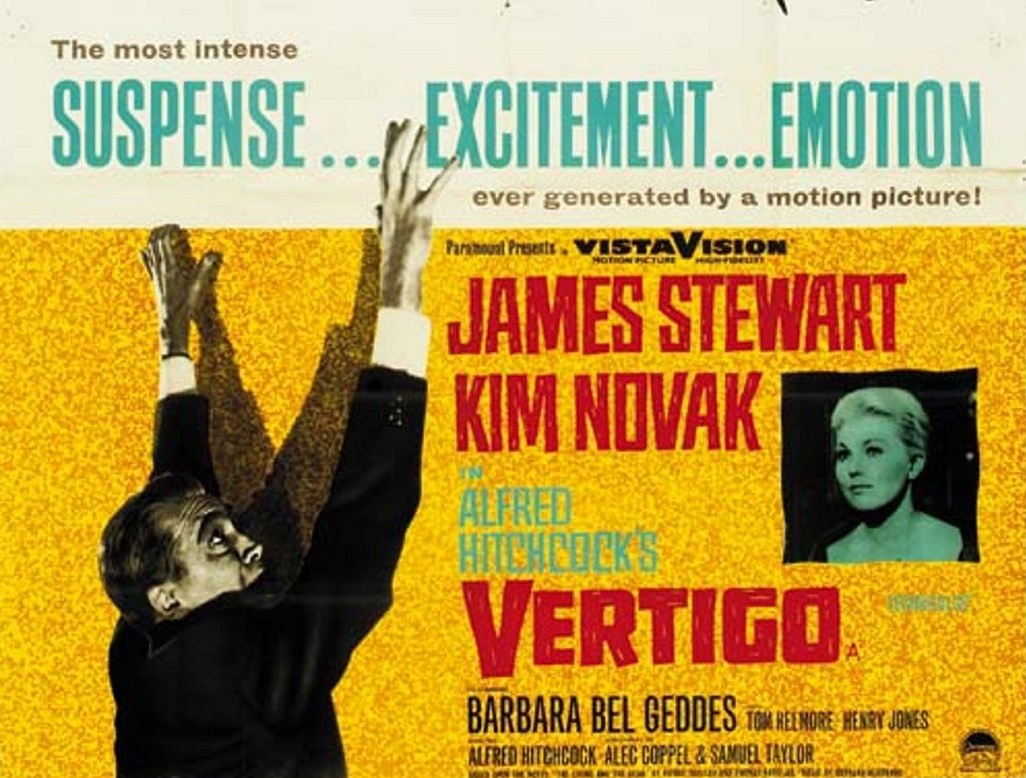
In 1958 Alfred Hitchcock created his masterpiece, Vertigo. Based upon the novel D’Entre les Morts by Pierre Boileau and Thomas Narcejac Vertigo was, itself, a modern variation of the Tristan myth upon which Richard Wagner based his opera, Tristan and Isolde. A story of love, obsession and enduring passion for a woman obscuring the fragile boundaries separating life and death, Vertigo became the perfect culmination not only of Alfred Hitchcock’s filmic fears and vulnerability, but of Bernard Herrmann’s, as well. A private detective is hired by an old college friend to trail his wife who, he fears, has become possessed by the tortured spirit of her great grandmother, Carlotta Valdez, a suicide victim. He ultimately falls passionately in love with the enigmatic, hauntingly beautiful young woman and tries vainly to prevent her sad destiny from unfolding. The detective, a retired police officer, wrestles simultaneously with his own personal demons, suffering from an unreasoning fear of heights after helplessly watching a fellow officer fall to his death in pursuit of a criminal. Ferguson (James Stewart) follows the reincarnated Carlotta/Madeleine to an old Spanish Mission where she climbs the tower steps and hurls herself to the cobbled street below. Suffering a nervous breakdown, the detective feels the weight of two deaths on his conscience. Wandering the streets of San Francisco in depression and acute melancholia, Ferguson sees another woman who, with some adjustment of hair, dress and makeup might look exactly like his lost love. He makes her acquaintance and begs Judy (Kim Novak) to dress and behave like Madeleine. Strangely, she agrees, and Ferguson’s world seems to be coming together again until one day when Judy absent mindedly wears the necklace she wore as Carlotta Valez and Ferguson realizes that she is the same woman. His old college friend, aware of the detective’s vertigo from the newspaper reports, murders his wife and hires Judy to play her, creating a perfect scenario for deception, all leading to the pivotal moment when he’ll hurl her lifeless body from the tower with Ferguson lingering helplessly upon the staircase he’s unable to climb. “Scottie” drags Judy back to the scene of the crime where he conquers his fear and finally ascends the staircase. In horror Judy backs away and falls to her death, this time for real.
Misunderstood and under appreciated by American audiences at the time of its initial release, Vertigo is considered by most critics today not only Hitchcock’s greatest work, but one of the greatest motion pictures ever filmed. The picture and its musical scoring by Bernard Herrmann are exquisite jewels. As in his earlier examination of love transcending the vaporous curtain of mortal passage, The Ghost and Mrs. Muir, Herrmann’s music for Vertigo is nearly exultant in its expression of mortal anguish and the redemption of love. Herrmann’s own deeply felt longing for love and acceptance is excruciatingly evident in the hauntingly lovely, poignant and exquisitely painful music rapturously caressing the film. Wagnerian it its intensity, Vertigo is at once stunning and torturous. Its searing sensitivity is startling, stripping naked the composer and his own anguished vulnerability. Vertigo is a deeply felt canvas, a sad and beautiful portrait, painted by two of the cinema’s most gifted artists.
Bernard Herrmann believed that music for the cinema carried the same significance as music written for the concert hall. Music was music, he said, and he gave unsparingly of his talent to films, television, radio, opera and the concert stage. He abhorred the term “Film Composer”… as if there could ever be a difference in the quality separating films and the concert stage. Herrmann felt that music snobbery on the part of critics was absurd. There were only two kinds of music, good and bad. All of Herrmann’s music was of the former variety. A year before Vertigo, Bernard Herrmann formed the third of his three major film associations, first with Orson Welles, then with Alfred Hitchcock and, finally, with Ray Harryhausen, the legendary Stop Motion/Special Effects technician. Beginning in 1957 with Harryhausen’s The Seventh Voyage Of Sinbad and on through The Three Worlds Of Gulliver, Mysterious Island and Jason And The Argonauts, Herrmann seemed to find another kindred spirit in the imaginative Harryhausen, and an outlet for his own soaring spirit, a spirit unwilling and unable to be contained by earthly or mortal constraints. The gentle, sensitive Harryhausen opened up a whole new dimension to the hungry composer, a world in which his musical boundaries were lovingly ripped asunder, a wondrous fantasy world in which his own imagination joyously took flight from the mythological shoulders of skeletons, cyclopian monsters and fire breathing dragons.
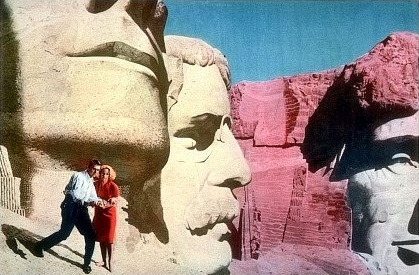
In 1959 Herrmann returned to the network of his birth, CBS, for a new television series created by writer Rod Serling to be called The Twilight Zone. Sticking to his feeling that music was music whatever the setting, Herrmann composed some of the most spiritual, haunting music ever written for the medium, including the series’ original main title and closing themes which introduced the program during its first year. His moody, somber, and ghostly music was far more profound and eloquent than the more recognizable, yet quirky theme, replacing it in the second season. His work on Rod Serling’s Walking Distance starring Gig Young as Martin Sloane, a sad, harried advertising man longing to return to the security and simplicity of his youth, is among the loveliest works of the composer’s career, heartbreakingly reminiscent of both The Ghost and Mrs. Muir and Vertigo.
That same year Herrmann returned to the world of Alfred Hitchcock for one of the pair’s most thrilling productions, North By Northwest, a joyously preposterous roller coaster ride in which an unsuspecting innocent is thrust headlong into murder, pursuit and as deliciously woven a case of mistaken identity as Hitchcock had ever imagined. It was the culmination of some thirty years of ever developing Hitchcockian wrong man melodramas, with a convoluted screenplay by Ernest Lehman that Richard Kimble would envy. Roger O. Thornhill (It stands for “rot.”), as delightfully enacted by Cary Grant, is the wrong man who finds himself thrust into an unwelcome world of menace, murder and mayhem while attempting to telephone his mother. Herrmann’s opening theme was among the most exciting the composer had ever written, a perverse and exhilarating fandango thrusting both the listener and the film’s hapless protagonist into a dizzying, calamitous freefall from the faces of Mt. Rushmore.
Herrmann had introduced Screenwriter Ernest Lehman to Hitchcock a year earlier, thinking the two might hit it off. Indeed they did, first for the aborted project The Wreck Of The Mary Deare and, later, for MGM’s North By Northwest, the only time the director would ever work for the benign, if not cowardly lion. North By Northwest is the director’s most frenetic thriller, an absolutely wondrous entertainment that became one of Hitchcock’s most critical and popular successes. From the nightmarish attack in the middle of nowhere by a venomous crop dusting plane to the laughably dangerous escape across the facial blemishes of Mount Rushmore’s most famous presidential gathering, North By Northwest is both a visual and musical tour de force.
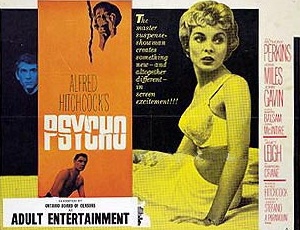
In 1960 Paramount Pictures released what would become Alfred Hitchcock’s most popular and, arguably, infamous success. Critics of the time dismissed the film as shoddy in tone and presentation, condescendingly deeming the picture unworthy of the aging director’s abilities. The public disagreed and Alfred Hitchcock’s production of Psycho proceeded to electrify audiences around the world. Paramount found the picture distasteful, objecting to its themes of murder, incest, and deviant sexuality. Hitchcock wanted to make Psycho in black and white for both artistic and economic reasons. It was, after all, a gothic horror film and color would shatter the sense of other worldly reality. Psycho was based on the novel by one of America’s most justifiably celebrated writers of suspense and weird fiction, the late Robert Bloch. Bloch was a sweet, witty and gentle man who, since the 1930′s, had been counted among the greatest purveyors of horror literature. When Psycho was published its dark, witty perversity appealed to Alfred Hitchcock. Although screen writer Joseph Stefano has in, recent years, either claimed or been given credit for Psycho’s narrative, Alfred Hitchcock always stated in interviews that his filmed version of Psycho “was ninety per cent Robert Bloch’s book.”
Hitchcock filmed Psycho on a tight television production budget and schedule, completing filming with a television crew in only five weeks. Upon completion of principal photography Hitchcock himself had begun to have serious misgivings about the picture. It seemed somehow flat and lifeless, and he gave serious thought for a time to cutting the film down to an hour and releasing it as a part of his long running television series. When Bernard Herrmann viewed the film he saw deeper possibilities and asked the director to entrust the film to him while the director went away on vacation. Hitchcock agreed asking only one favor of Herrmann, that he not score the shower sequence, preferring that the murder be illustrated only by the lonely sound of the running shower. When Hitchcock returned from vacation he viewed the picture with the additional element of music. Due to budgetary constraints, Herrmann was reduced to using only strings for the film without any other instrumentation. (The composer remarked later that a black and white film required the simplicity of a black and white score) Herrmann had, however, ignored Hitchcock’s instruction not to score the shower sequence, trusting that he had enough respect from his employer to take a chance on risking the loss of the director’s legendary temper. When Hitchcock saw the completed scenes with Herrmann’s shrieking violins tearing at Janet Leigh’s vulnerable torso, along with Anthony Perkins’ knife, he gave his nod of approval. “But Hitch,” Herrmann asked. “I thought you didn’t want any music during the shower sequence?” To which Hitchcock replied “Improper suggestion, my boy, improper suggestion.”
The score for Psycho was wall to wall music; a landmark, wholly original and influential symphonic masterwork…except for one brief interlude…the “Madhouse” theme, first written for Herrmann’s 1935 Sinfonietta for Strings and used again as the coda for the composer’s Moby Dick cantata, making a final appearance after Psycho in Herrmann’s last film, Martin Scorsese’s Taxi Driver. Hitchcock was regenerated by the greatest popular success of his career and yet, after Psycho, seemed to harden his heart increasingly toward others associated with his continuing popularity. In a rare public display of generosity, however, Hitchcock would often proclaim to interviewers that “thirty three and a third of Psycho’s success was due to Bernard Herrmann’s music.” Still, Hitchcock was growing increasingly reluctant to share the spotlight. A subtle, nearly unnoticeable chasm was beginning to develop between the two men.
Slowing down and becoming increasingly selective of his film projects, it would be three years before the next Alfred Hitchcock production would hit the screen. Moving over to Universal Pictures where he was offered a more lucrative, studio participatory role as a company executive, Hitchcock next tackled Daphne du Maurier’s short story The Birds, about the planet’s entire bird population turning savagely, and with decided finality, against mankind. Hitchcock had considered filming Marnie, a novel by Winston Graham, during this period when his favorite leading lady, Grace Kelly, had briefly flirted with the romantic idea of returning to motion pictures. The director soured on the idea when the royal family of Monaco objected to the thought of their princess portraying a mentally disturbed kleptomaniac for her return to films. Instead, Hitchcock returned to the author who had written his first American film, Rebecca. The Birds was largely a showcase for Universal’s special effects technicians. The screenplay ventured far from du Maurier’s original story and seemed lacking in any sense of depth or cohesion. The cast for the picture was noticeably lackluster. It introduced Hitchcock’s latest “find,” Tippi Hedren, a pretty young actress lacking any meaningful experience. Critics at the time attacked Hitchcock as savagely as his birds for turning senile and sacrificing wisdom for an over active libido. Reception to the film was not kind, and Bernard Herrmann had little to do with the picture other than to “orchestrate” bird cries under Hitchcock’s instruction.
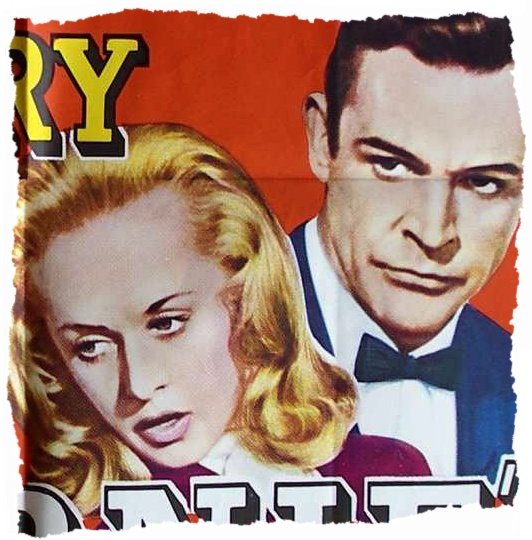
Herrmann fared better with the master’s next film, Marnie. Now that the inexperienced Tippi Hedren had so completely captivated him, Hitchcock was determined to turn her into a star and prove the critics wrong. For his part, Bernard Herrmann felt that the casting of Hedren in both pictures was a mistake, and the two men clashed again. In spite of the film’s structurally inherent weaknesses, Bernard Herrmann constructed a magnificently romantic score, a breathtaking, rapturous symphony that has survived the film it was written for. With his age increasing and his power over the box office diminishing, Hitchcock was beginning to be perceived by the public and industry insiders alike as old fashioned and out of step with the times. Perhaps, because of this growing realization that his career was nearer the end than the beginning, the director clutched at his newly found management status at Universal ever more fervently, and seemed to adhere more to company line and policy than ever before. The studios had become more attuned to corporate philosophy than artistic consideration, and financial success was not only the bottom line, but the only one. Consequently, when the studio demanded that Hitchcock produce a hit song for Marnie in order to generate revenue for its recording arm Hitchcock, the ever loyal executive, demanded the same of Herrmann. The studio had been resistant to using Herrmann to score Marnie from the beginning. Hitchcock capitulated by insisting upon the hiring of Herrmann, but then ordering the serious composer to pen a hit tune for the picture. Studio executives felt that Herrmann was too old fashioned for their liking. There were enough newer, younger composers on the scene, willing and hungry enough to get the job done without uttering a syllable of protest. Herrmann, on the other hand, told Hitchcock that he was crazy to want a song for his picture. He tried to remind Hitchcock of his own strength, reputation and popularity as a director, and suggested that Hitch tell his employers to shove their intrusive and improper suggestions up their collective rectums. Once again Herrmann was able to convince Hitchcock of the wisdom of his judgment but, despite the fact that Herrmann’s music was the best thing about the picture, the film’s failure at the box office increased peer and corporate pressure on the insecure Hitchcock, convincing him that he needed a hit, and effectively weakening Bernard Herrmann’s stature and influence where Hitch was concerned.
The musical climate in Hollywood was changing dramatically. The glory days of rich scores and enormous numbers of symphony players was now looked upon by cost conscious studio executives with scorn and derision. Motion picture studios had become huge conglomerates with many and diverse interests and obligations. During the nineteen sixties, confusion and a corporate loss of identity seemed to plague film makers and their employers. Never before in the long history of Hollywood had there been such hysteria over how many masters one should serve. In order to stay alive the studios had become so departmentalized and fragmented that no central voice ever had the autonomy that had been enjoyed over the previous forty years. Teenagers had taken over the commercial market place, and motion picture executives were falling over one another in corporate corridors to appease them. If kids didn’t buy it, then it was a failure at the box office. Even in the creative end, the old guard was dying out, being quickly replaced by a new breed of composer with new priorities and more commercial sensibilities. Money was not only the bottom line. Again it had become the only line. Symphonic scoring for motion pictures were looked upon as archaic, a distasteful relic of prehistoric times. Lionel Newman, who had succeeded his brother Alfred as the head of Fox’s music department, told Bernard Herrmann that producers didn’t want him anymore…that they were “running with the new kids.” Indeed, if a film didn’t include a marketable “rock” soundtrack for the kids, that omission could cut deeply into a film’s profits.
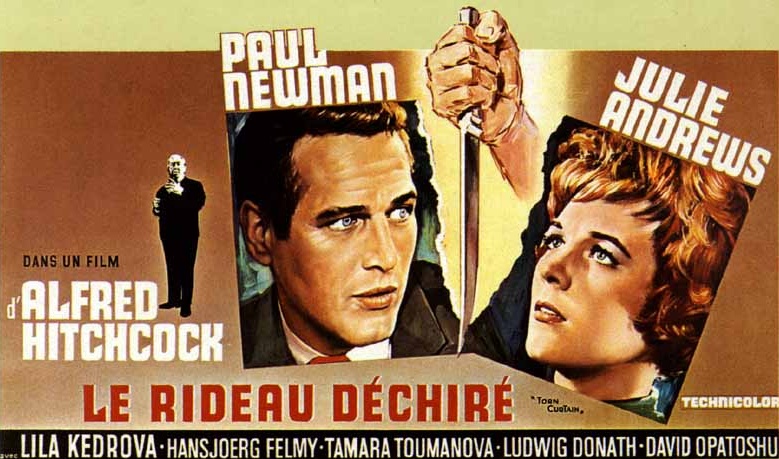
No one was more aware of this new reality than the ageing Alfred Hitchcock who, although financially secure, had become quite paranoid over his recent failures at the box office. The failure of Marnie was a particularly bitter pill to swallow for Hitchcock who conveniently laid the blame for the picture’s failure at the doorstep of Bernard Herrmann. Lew Wasserman, the head of Universal and its corporate parent MCA, was adamant in his instruction to Hitchcock that a younger, more economically savvy composer be assigned to his new film, Torn Curtain. Wasserman held a grudge against Herrmann who had earlier turned down a job from the powerful studio head. All right, Benny, Wasserman said. When you get hungry you’ll come to see me. To which Herrmann replied Lew, when I get hungry I go to Chasen’s.
Hitchcock’s insecurities had made the once strong director frightened and indecisive. Unsure of which way to turn, he preferred not to think about the music for Torn Curtain, only half heartedly allowing his assistant, Peggy Robertson, to enter into preliminary discussions with Bernard Herrmann, now living in England and deeply depressed over the recent separation with his wife, Lucy. Hitchcock communicated with Herrmann now only through intermediaries and in telegrams. Through these cold, business like communications, it was becoming increasingly clear to Herrmann that his friendship with Hitchcock had suffered a mortal blow. Resentment on the composer’s part stemmed not only from a correct perception that the once mighty director had been reduced to a corporate puppet, being pushed around by his employers, but also from a bitter experience on Psycho when Hitchcock had substantially cut his salary in order to bring the picture in on a reduced television budget.
In these terse, almost condescending communications to England, Hitchcock made his desires for the Torn Curtain score abundantly clear. The type of music that they had used in their previous efforts was out of step with the times and old fashioned, wrote the director, who also felt that Herrmann had begun repeating himself and plagiarizing his work for Hitchcock. If Herrmann wanted to work with Hitchcock again, and enter this brave new world, he would have to learn new ways, and write a “hit” song that would appeal to teenagers. Herrmann tried to reason with the elder director and wrote back that Hitchcock was not the kind of film maker who made pictures for children. Hitchcock felt that he was being bullied and pressured by all sides, and didn’t seem to understand why Herrmann couldn’t simply capitulate and do what he was told to do. From Hitchcock’s point of view, Herrmann was an arrogant thorn in his side that needed to be removed in order to complete the picture. Times in the industry had significantly changed, he felt, and you either changed with them or fell beneath their wheels. The reality, of course, was another shade of gray. Torn Curtain was a dreadful picture, hopelessly boring and static with a flat script and lifeless performances from its principal players. The film needed a dramatic counterpoint in order to retain at least the appearance of suspense. What Torn Curtain needed, Herrmann later said, was music that didn’t make these people into ludicrous TV characters, but into reality.
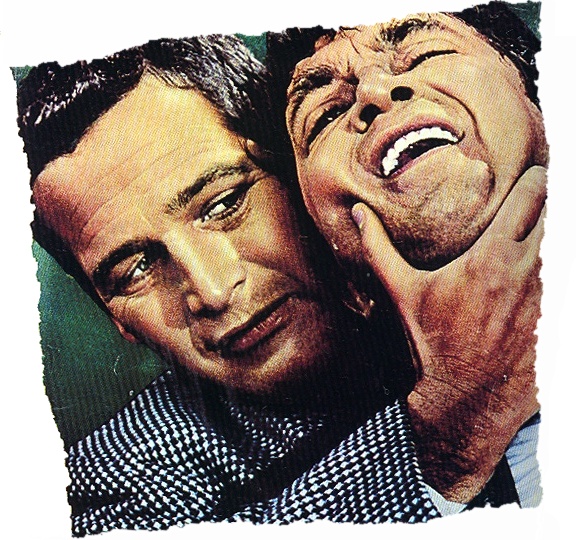
Hitchcock had instructed Herrmann to refrain from writing any music at all for a ten minute sequence in an isolated farmhouse in which the hero engages in a life or death struggle with a Russian agent. While, arguably, the highlight of a lackluster picture the scene was still, somehow, flat. Recalling Hitchcock’s earlier “improper suggestion” to leave the shower sequence in Psycho silent, Herrmann felt that he could once again save the picture by ignoring Hitchcock’s instruction. In the Oscar nominated documentary Music for the Movies: Bernard Herrmann (Les Films D’Ici/Alternate Current/La Sept – 1992) the infamous sequence is first shown as it appeared in the final release without music, and then shown again with the addition of music written by the composer for the scene. The difference is, to coin a phrase, like night and day. The music, stark, brutal and dramatic, breathes welcome life into the sequence, rendering it far more realistic and shocking than it could ever have been played out over a silent soundtrack. Herrmann began recording the score on the Goldwyn soundstage in late March, 1966. After performing the “main titles” the studio players broke into spontaneous applause, demonstrating their enthusiasm for the work. Shortly thereafter Hitchcock, who must have been warned by his spies about the performance, arrived, unannounced, on the stage accompanied by his assistant, Peggy Robertson. Herrmann, believing in the correctness of his score, asked Hitchcock to listen to the newly recorded cues. Hitchcock’s rage was apparent as he told Herrmann that the music was exactly what he didn’t want. Herrmann begged Hitchcock to at least allow him to finish the day’s recording, and then make his decision. After all, both the stage and the musicians’ time had already been paid for. In a decision unheard of in Hollywood, evidently calculated to scold and humiliate Herrmann in front of his peers, Hitchcock dismissed the orchestra midway through recording and cancelled the remaining sessions. After a few terse, embittered words Hitchcock returned to his office, apologized to his employers, fired Herrmann, and offered to pay off the composer out of his own pocket. Hitchcock then telephoned Herrmann, recalls Alan Robinson, a horn player at the recording session, and began berating the stunned composer for stabbing him in the back. No less volatile, Herrmann screamed back that Hitchcock had abandoned his integrity and sold out for an extra couple of bucks. The telephone conversation was brief but deadly, effectively ending one of the most successful artistic relationships in the history of motion pictures. Alfred Hitchcock and Bernard Herrmann never spoke cordially to one another again.

Torn Curtain was released by Universal later that year with a new score by British composer, John Addison. As Herrmann had predicted, the picture was both a critical and commercial disaster. The mediocre score by Addison failed to produce the hit song that Universal desired. Both the film and its music were quickly and mercifully forgotten. It’s been suggested that Hitchcock had grown jealous, not only of Herrmann’s popularity and high profile persona, but of a growing perception that his films owed their previous success to the musical influence of the composer’s work upon them. Whatever the reasons for the split, as in most divorces, one participant remained certain of the correctness of the decision, while the other agonized over its finality. Indeed, Herrmann never recovered from the separation with Hitchcock, either emotionally or economically. The musical tenor of the times had abruptly changed and assignments within the Hollywood community had grown few and far between. Years later, during a speaking engagement at the University of Southern California, Hitchcock was asked if he’d ever work with Herrmann again. “Yes,” he replied, “if he’ll do as he’s told.”
Herrmann deeply mourned the loss of his friendship with Hitchcock, and pleaded with mutual friends and colleagues to intercede on his behalf, but it was to no avail. As far as Hitchcock was concerned, Herrmann had tried to sabotage his film and their friendship was over. Herrmann’s health began declining, and the once handsome young composer appeared far more aged than his years. Happily, within two months of the Torn Curtain debacle, Herrmann was at work on one of his finest scores for French director Francois Truffaut, the lushly romantic Fahrenheit 451, based on the celebrated futuristic novel by one of fantasy and science fiction’s most gifted writers, Ray Bradbury. The film is a haunting, memorable fantasy, Truffaut’s first English language picture, producing a deeply felt, moving and poetic score by Herrmann.
In 1972 a talented young director named Brian De Palma, believing Bernard Herrmann dead, requested a Herrmann-like composer for his Hitchcockian thriller Sisters. When he learned, to his delight, that Herrmann was not only alive but hungry for film work, the director immediately set up a meeting in order to screen a print of the film for Herrmann. Believing that it would give Herrmann an idea of the kind of music he wanted for his film, De Palma arranged to have the soundtrack of Marnie played under the dialogue. Herrmann was not amused, and began thumping his cane against the floor threateningly. When De Palma, dumbfounded, warily asked Herrmann what the problem was, Herrmann berated him mercilessly for presuming to suggest how he should score the film. “But Hitchcock,” De Palma pleaded. “You, Sir,” replied Herrmann icily “are not Hitchcock.” Herrmann’s temper was legendary in Hollywood, as recalled by Andre Previn on a 1980 television special, Music for the Movies, televised by WQED-TV in Pittsburgh, and shown throughout the nation on public television. Performing cues from Psycho with the Pittsburgh Symphony, Previn recounted a harrowing incident at Twentieth Century Fox in 1951 when visiting the scoring stage for Robert Wise’s The Day The Earth Stood Still. Fascinated by the diversity of electric instrumentation Herrmann was using for the picture, Previn returned with an electric blanket which he presented to the outraged composer. “He didn’t find it funny at all,” remembered Previn, forced to stand there and endure Herrmann’s withering tirade.
In his final years, Bernard Herrmann was being re-discovered by an entirely new generation of film directors who had grown up inspired by classic films featuring his music. He had even begun a series of newly recorded albums in which he conducted excerpts from many of his most prestigious scores. The first of these, recorded with the National Philharmonic Orchestra, was “Music From The Great Movie Thrillers”, an affectionate homage to his work for the films of Alfred Hitchcock. When the album was released in 1968 Herrmann hoped that its appearance might soften Hitchcock’s heart toward him. With his new bride, Norma, at his Side, Herrmann returned to Los Angeles from England and visited Hitchcock’s office, wanting to introduce her to his old friend. Hitchcock, lurking on the other side of the door, refused to see him, sending Herrmann into a rage, storming out the door to the director’s office for the last time.
Hitchcock was to direct only three more films, Topaz in 1969, Frenzy in 1972 and Family Plot in 1976. Of these, only Frenzy was recognized by the critics as a last masterwork by an aging genius. Although honored frequently as a distinguished elder statesman, most notably by The American film Institute who presented the director with their Life Achievement award in March, 1979, Hitchcock in his last years was plagued by depression, frustration and loneliness. At 9:17 on the morning of April 29, 1980, with his family at his bedside, Alfred Hitchcock passed quietly away. He was eighty years old. In June and July, 1975, Bernard Herrmann wrote one of his most exquisite scores for Brian De Palma’s haunting Vertigo clone, Obsession, arguably De Palma’s masterpiece. The complex tale of love, passion and betrayal was deeply moving in its own right, despite the similarities to the Hitchcock film, inspiring a beautiful, profoundly romantic score by Herrmann. Martin Scorsese was a long time admirer of Herrmann’s work and offered him an opportunity to write the music for his new film with Robert DeNiro, Taxi Driver. From October through December, 1975, Herrmann committed himself to completing his brooding jazz score for Scorsese, a score he felt might now, at long last, take him in new directions. It was an adventurous, experimental work atypical of the composer’s overwhelming body of music, and one which he felt most excited about.
On December 23rd 1975, complaining of not feeling well, Herrmann, nonetheless, insisted on finishing the recording of his music for Taxi Driver in order to meet the deadline for completion of the soundtrack. Just past midnight on Christmas Eve, 1975, Bernard Herrmann sighed and passed away peacefully in his sleep. In a tribute rare in Hollywood, Martin Scorsese dedicated his acclaimed film to the late composer. The final credit in the picture reads, simply, Our gratitude and respect, Bernard Herrmann, June 29, 1911-December 24, 1975. It was an eloquent summation to a life and career in service to the nobility of art. The divisive, violent tearing of a curtain binding two men together in love, friendship and mutual respect was not unlike the blood soaked torn curtain ripped from its hinges in Psycho, the last vestige of humanity separating Marion Crane from ultimate disaster and destruction. The title of their last collaboration, Torn Curtain, was no less prophetic.
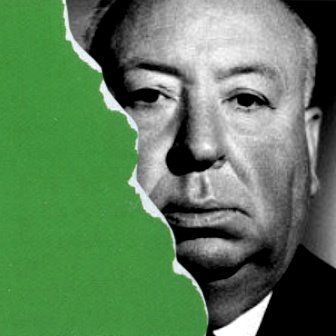
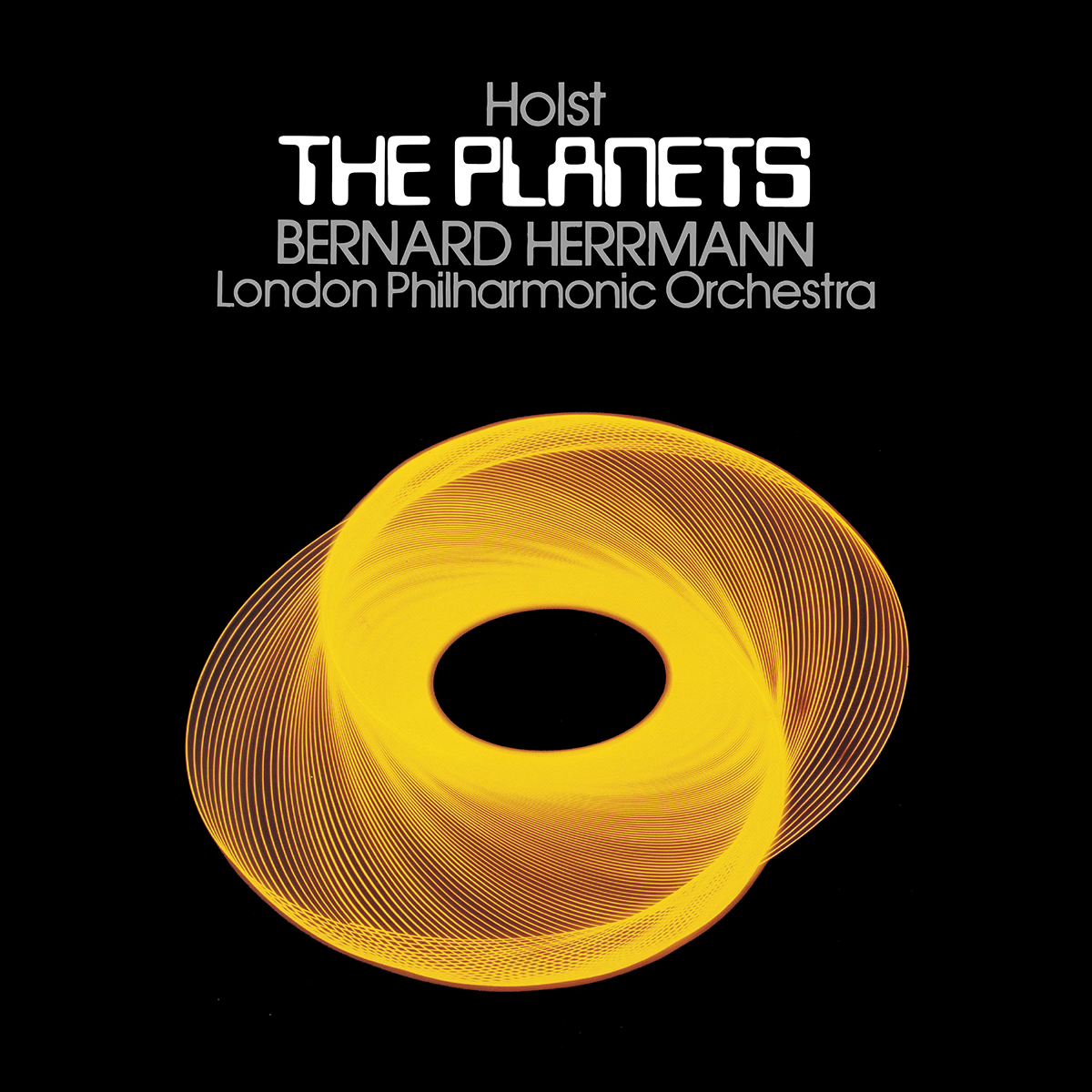
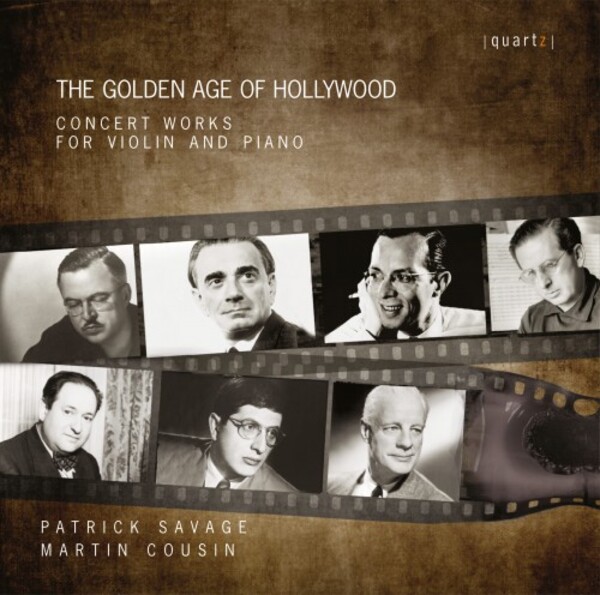
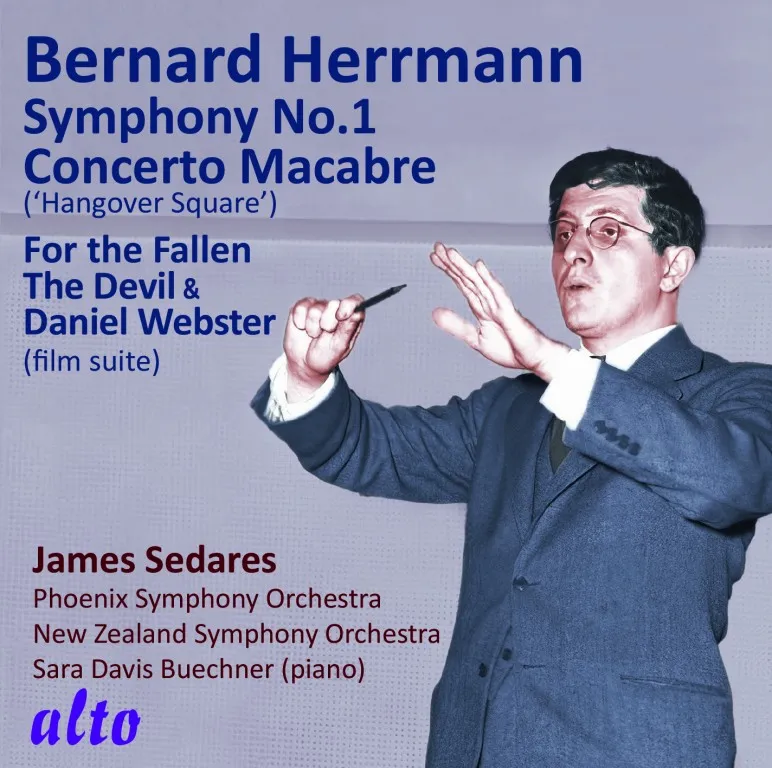
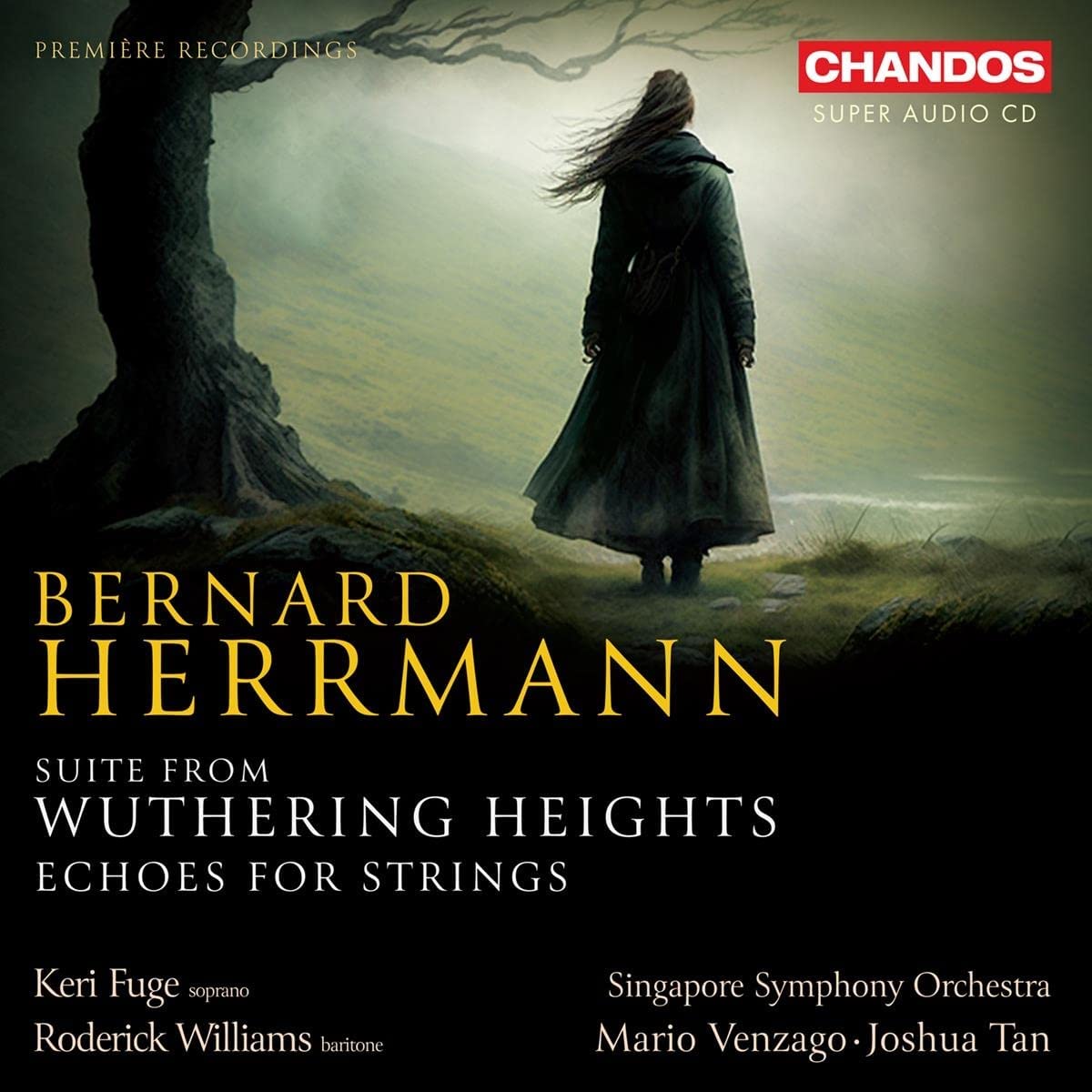
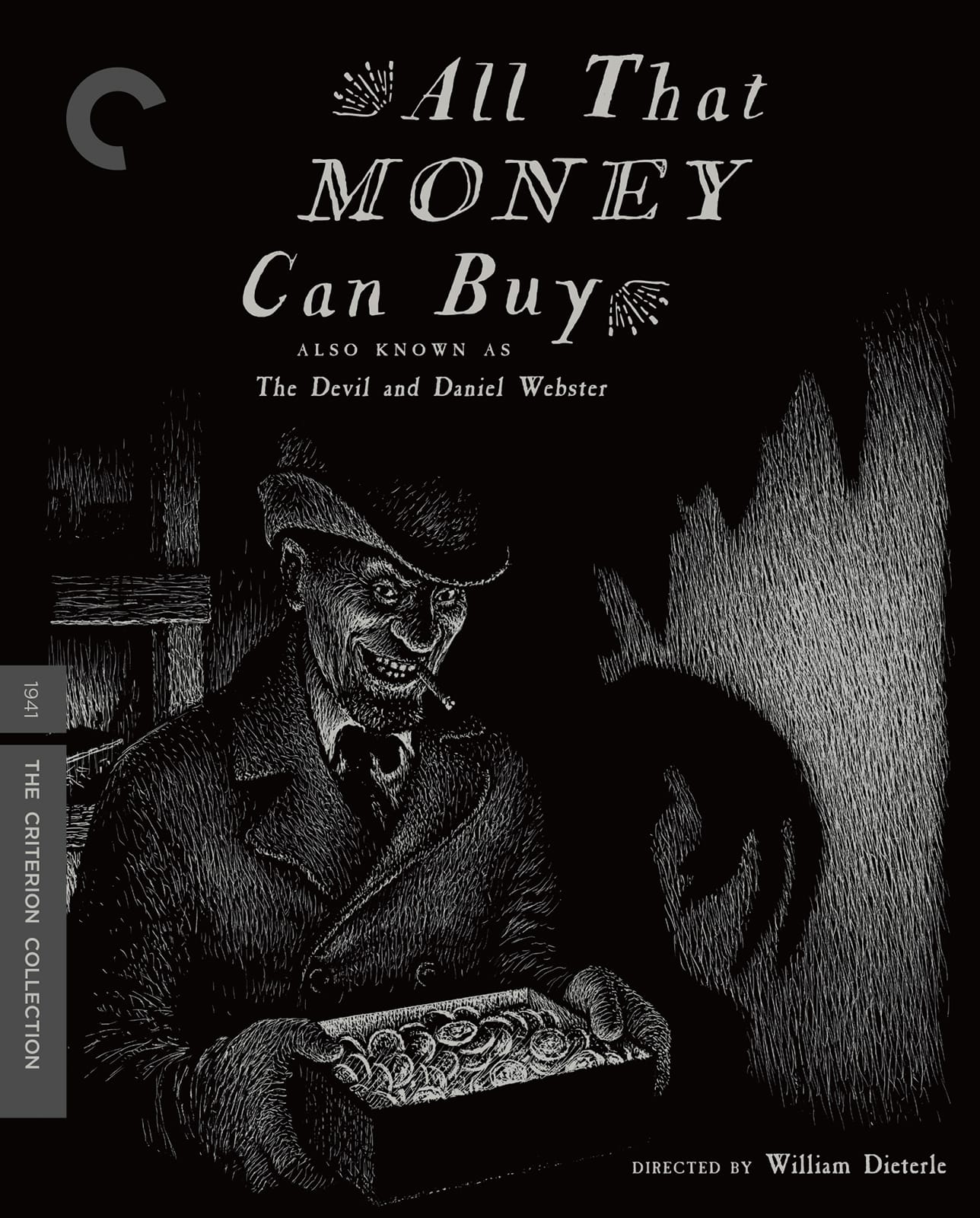
![The Man Who Knew Too Much – 4K restoration / Blu-ray [A]](http://www.bernardherrmann.org/wp-content/uploads/2023/11/TMWKTM-4K.jpeg)
![The Bride Wore Black / Blu-ray [B]](http://www.bernardherrmann.org/wp-content/uploads/2023/07/BrideWoreBlack.jpeg)
![Alfred Hitchcock Classics Collection / Blu-ray [A,B]](http://www.bernardherrmann.org/wp-content/uploads/2020/07/AHClassics1.jpg)
![Endless Night (US Blu-ray) / Blu-ray [A]](http://www.bernardherrmann.org/wp-content/uploads/2020/03/EndlessNightUS.jpg)
![Endless Night (UK Blu-ray) / Blu-ray [B]](http://www.bernardherrmann.org/wp-content/uploads/2019/12/ENightBluRay.jpg)